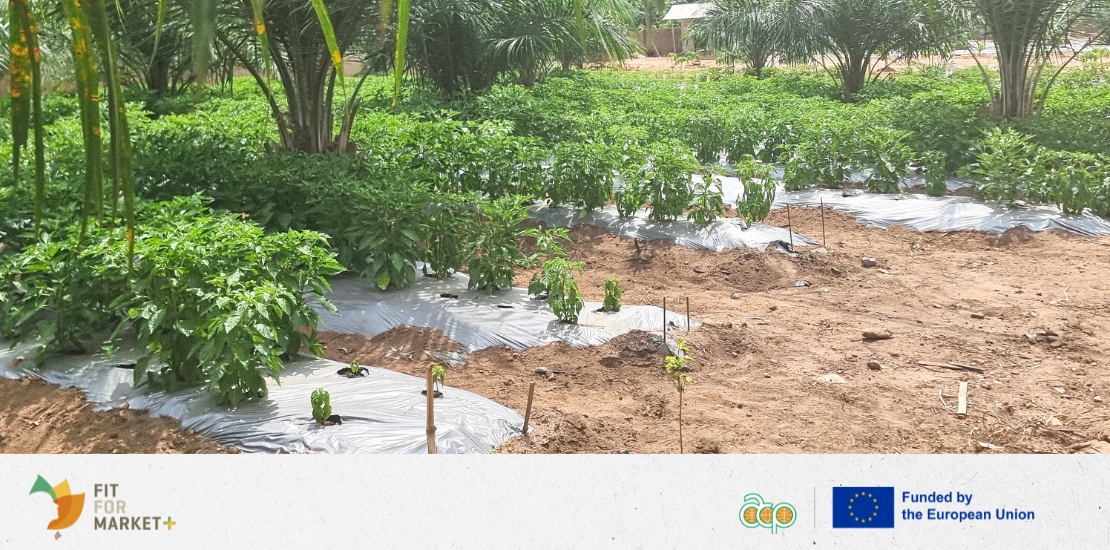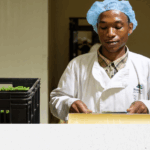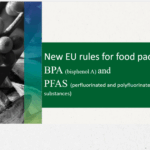- 04/12/2024
- Posted by: Sandra Borma
- Category: News

Kulla Farms in Nigeria improves soil sustainability through nutrient management plans
At the heart of sustainable agricultural development is the recognition that soil health underpins the resilience and productivity of farming systems. Kulla Farms Limited, a pioneering greenhouse farming operation in Obafemi Owode Local Government, Abeokuta, Nigeria, demonstrates this principle through its recent collaboration with COLEAD through the FFM+ programme to develop a tailored Nutrient Management Plan (NMP).
Established in 2023 but rooted in a family legacy of horticultural excellence dating back to 1980, Kulla Farms specialises in high-value crops such as peppers, habanero and cucumbers. The farm’s two hectares of arable land features state-of-the-art greenhouse facilities and open field production, complemented by a growing focus on plantain cultivation.
Driven by a commitment to sustainability, Kulla Farms’ management recognised the need to improve soil management practices to maintain high yields. To achieve this, the farm participated in COLEAD’s November 2023 Soil Management Training through the FFM+ programme, a capacity building initiative that reflects COLEAD’s mission to integrate economic, social and environmental sustainability into agricultural practices.
Following the training, COLEAD technical experts worked with Kulla Farms to develop a tailored nutrient management plan. This initiative incorporated comprehensive soil test results, crop-specific nutrient requirements and best management practices. The plan emphasises corrective action and targeted fertiliser recommendations, providing a solid foundation for improving soil health and crop performance.
The results of this intervention go beyond immediate productivity gains. By adopting a science-based approach to soil and nutrient management, Kulla Farms is positioning itself as a model for sustainable horticulture. Integrating COLEAD’s expertise not only strengthens the farm’s operational resilience, but also aligns with broader goals of reducing environmental impact and promoting long-term agricultural sustainability.
Kulla Farms’ journey highlights the importance of agricultural solutions adapted to the local context and capacity building in achieving the Sustainable Development Goals (SDGs), particularly those centered on responsible production, environmental stewardship and resilience to climate change.
As COLEAD continues to support initiatives like this, the organisation reaffirms its commitment to promoting sustainable food systems.
This activity is supported by the Fit For Market Plus (FFM+) programme, implemented by COLEAD within the Framework of Development Cooperation between the Organisation of African, Caribbean and Pacific States (OACPS) and the European Union. This publication receives financial support from the European Union and the OACPS. The content of this publication is the sole responsibility of COLEAD and can in no way be taken to reflect the views of the European Union or the OACPS.





